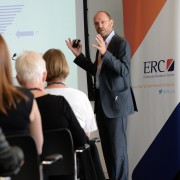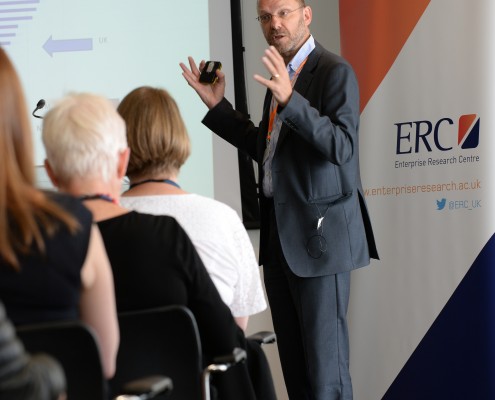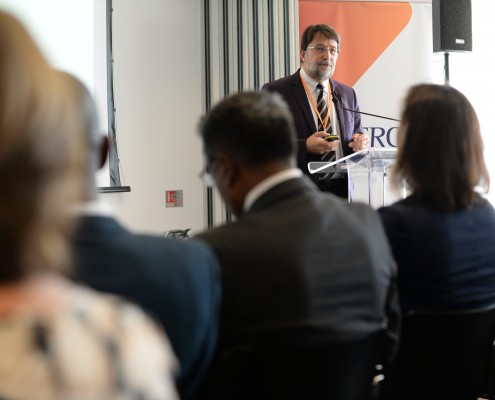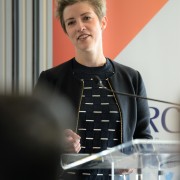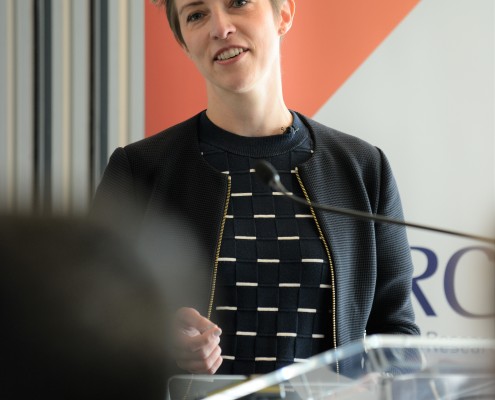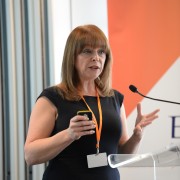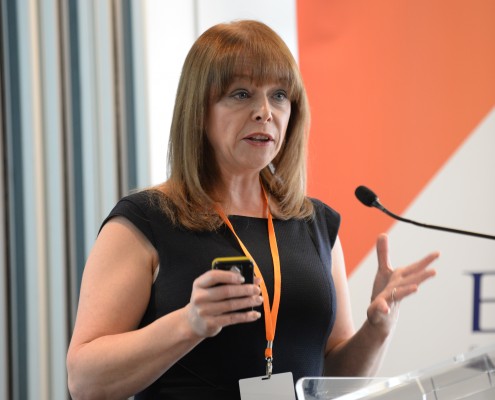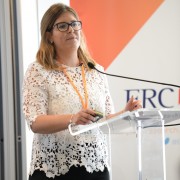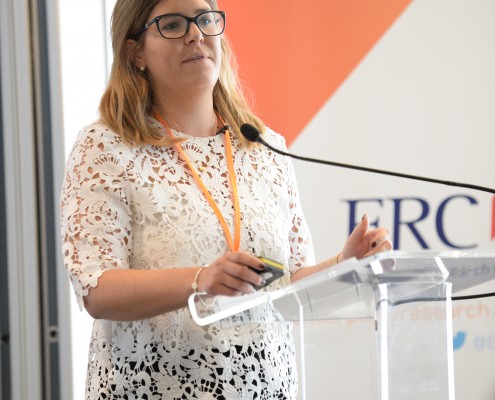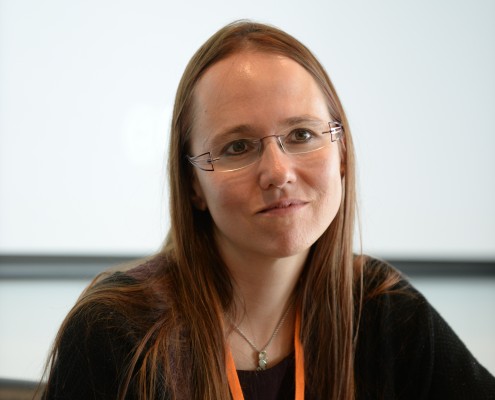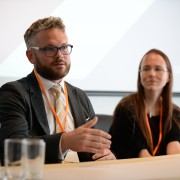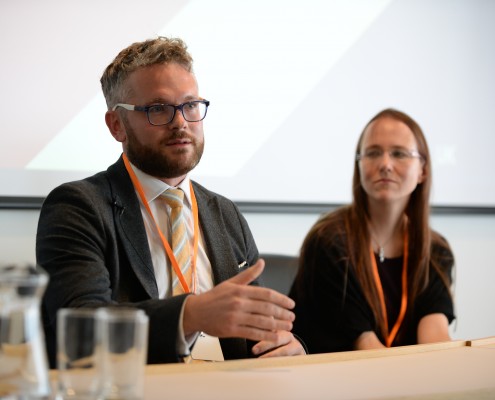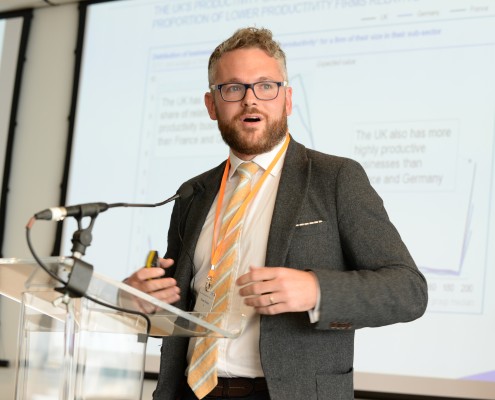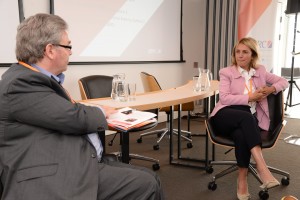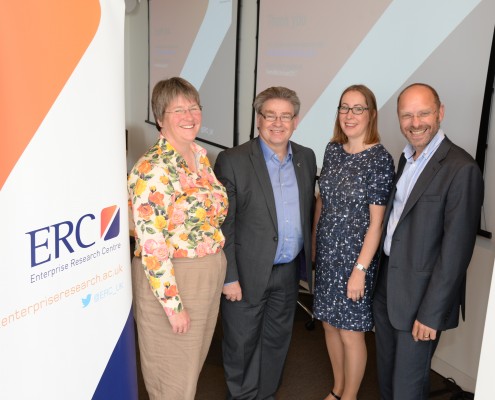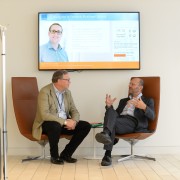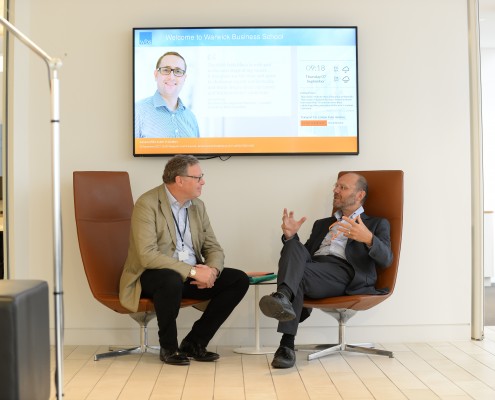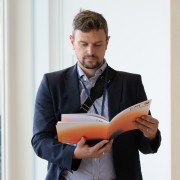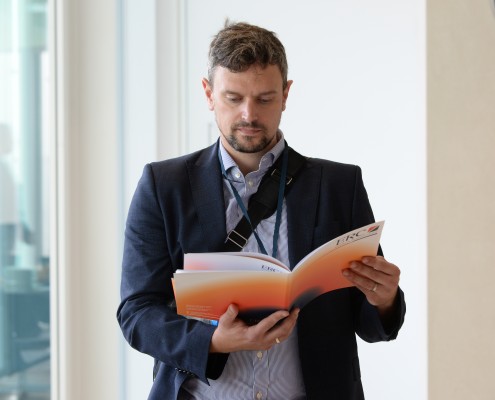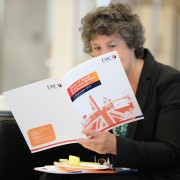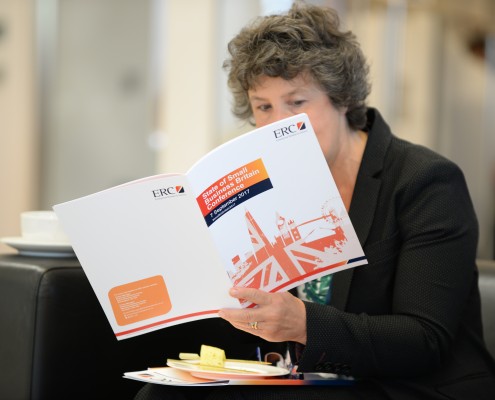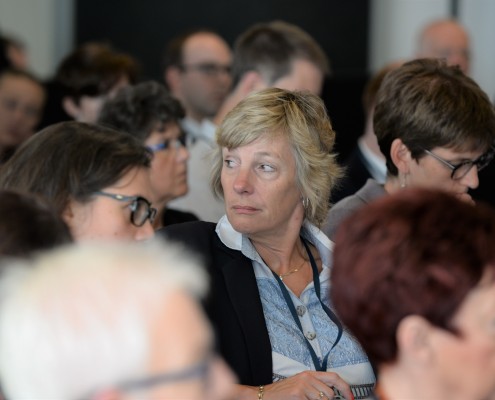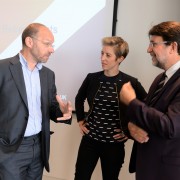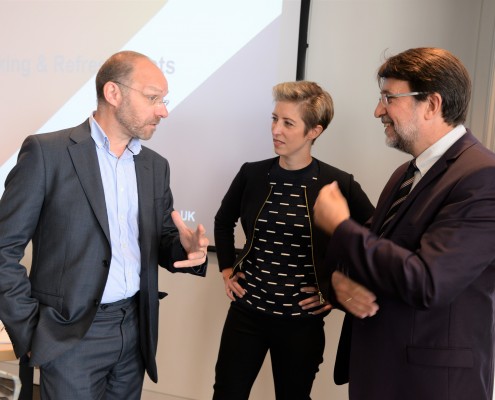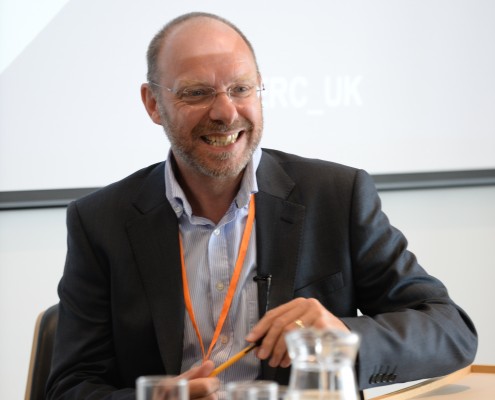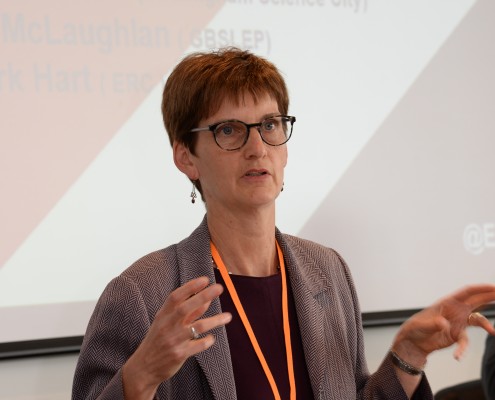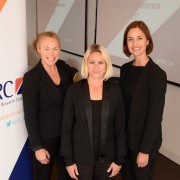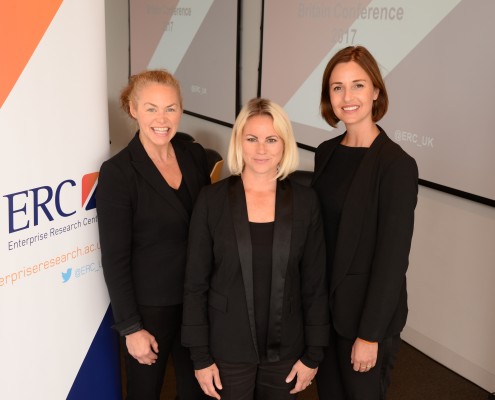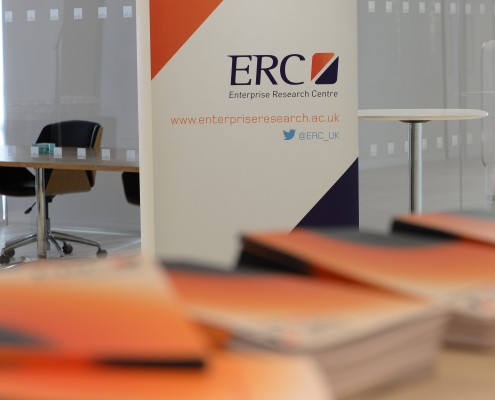State of Small Business Britain 2017
On the 7th September the ERC welcomed over 100 delegates to The Shard for the fourth State of Small Business Britain Conference, with a focus on the theme ‘Driving Innovation and Growth’.
This year’s theme was particularly timely, as innovation has been identified as one of the ten strategic pillars to drive growth and productivity in the government’s new Industrial Strategy. The conference explored the crucial question of what needs to be done to promote and support growth through innovation in UK SMEs through a range of stimulating presentations and discussions.
The conference was chaired by Lucy Armstrong, Chair of the ERC’s Advisory board, and began with a showing of the ERC’s latest video, ‘Innovation, Diffusion, Growth’, which set the context for the day’s discussion. The video brings to life some key facts about the innovation landscape in the UK, drawing on the latest ERC research. It illustrates the geographical differences in the UK in terms of innovation and growth, and the potential that greater diffusion of innovation amongst firms could offer in reducing the UK’s productivity gap.
Professor Stephen Roper, Director of the ERC, then took to the stage to delve further into these issues, presenting the findings of ground-breaking ERC research into the impact of research council grants on the performance of UK firms in terms of turnover, productivity and employment. This research shows that grants do have a positive impact on growth. However, Stephen also questioned whether innovation policy could be more effective if there was more targeted support for firms with lower levels of productivity.
This set the stage perfectly for Kevin Baughan, Deputy Chief Executive of Innovate UK. Kevin delivered a keynote presentation which set out the ambitions of the newly launched UK Research and Innovation (UKRI) in creating the best environment for innovation to flourish in the UK, and detailed the work being done by Innovate UK in funding and connecting business-led innovation.
The value of the work Innovate UK does to empower innovative businesses was then demonstrated powerfully through a presentation by Emma Sceats, Chief Executive of CN-Bio Innovations, a successful company that has benefited from innovation grant funding. Emma gave delegates a vivid insight into some of the challenges involved in growing a highly ambitious and innovative business.
Stephen Roper: Driving Innovation, driving growth.
Kevin Baughan: Research & Innovation Growth & Diffusion
Emma Sceats: Innovating for Growth
The second half of the morning session focused on the different elements that need to be in place to support innovation and commercialisation. Professor Tim Dafforn, Chief Entrepreneurial Adviser at the Department for Business, Energy and Industrial Strategy joined us for the first ‘In Conversation’ session of the day. Conference chair Lucy Armstrong posed a range of questions to Tim about his work leading the government’s Entrepreneurial Review. In a wide-ranging discussion, Tim emphasised the importance of supporting innovators through the entire entrepreneurial journey, and the key role of the education system within this.
This discussion led nicely to the next presentation by Professor Nola Hewitt-Dundas of the ERC, who presented new ERC research findings about the role of universities as ‘engines of growth’. Nola emphasised the positive impact that engagement with universities has on innovation and business performance, but noted that SMEs in particular need more support to find the right university to collaborate with, and that spinout activity needs further support.
Carrying on the theme of SME support, the conference next welcomed Pippa Hall, Director of Innovation at the Intellectual Property Office (IPO), who gave an overview of the work of the IPO in encouraging and enabling SME innovation and growth through intellectual property. Pippa noted that although UK companies are now built on their intellectual (rather than physical) assets, too many SMEs miss opportunities to fully realise the potential of this, and too few have the knowledge and skills to develop, value and exploit the situation.
A lively Q&A with all session speakers closed the morning session, focusing on what needs to be done to better support SMEs through the commercialisation pipeline.
Nola Hewitt-Dundas: Universities as engines of growth
Pippa Hall: Unlocking SME innovation and growth potential through IP
After a networking lunch we began the afternoon session with two keynote presentations. First up was Caroline Paunov, Senior Economist at the OECD, who gave a talk looking at the opportunities and challenges for SMEs in the digital economy. Caroline noted the potential offered by the intangible economy for SMEs, but acknowledged the need for inclusive innovation policies to allow biases towards larger companies to be avoided.
Tom Thackray, Director of Innovation at the CBI took to the stage next, setting out the work the CBI has done to better understand the UK’s productivity problem. Tom emphasised the importance of innovation to raising UK productivity, and the need to better target businesses that can benefit from support to improve innovation diffusion.
Caroline Paunov: Inclusive innovation Ecosystems in the digital economy
Tom Thackray: Innovation Diffusion: The solution to the Productivity puzzle
The conference then took a change of pace, with our second ‘In Conversation’ slot, the questions being posed this time by Professor Mark Hart of the ERC to entrepreneur and co-founder of Coffee Republic, Sahar Hashemi OBE. A fascinating conversation followed in which Sahar reflected on what it means to be an entrepreneur and innovator. She emphasised the importance of innovation as a process of trial and error, and the ways in which government can play a role in supporting the right environment for this vital experimentation to take place.
The final session of the day was a thought-provoking discussion focusing on the theme of ‘Promoting Place Based Innovation’, with Adam Marshall of the British Chambers of Commerce, Ian McLaughlan of Greater Birmingham and Solihull LEP, and Pam Waddell of Birmingham Science City taking part in a panel chaired by Professor Mark Hart. This touched on a range of themes, but the overriding messages were perhaps that places need to understand the uniqueness of their local assets to maximise growth rather than ‘copying’ strategies taken elsewhere; and that effective partnerships are key to bringing the right solutions to local areas – including partnerships between businesses themselves.
The three ERC Directors rounded off what was a very busy day by thanking the speakers and delegates for a stimulating event full of new insights about the importance of innovation to the state of small business Britain.
Take a look at some of the event pictures in our gallery.
